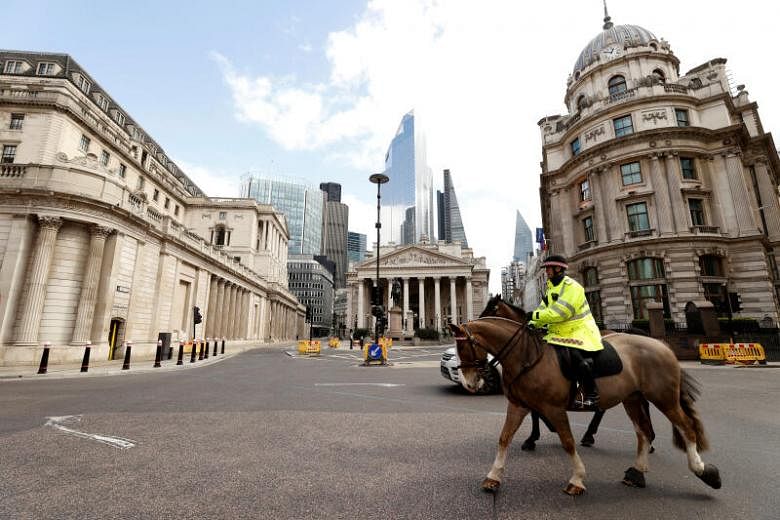Across the globe, countries are taking unprecedented measures to reduce people-to-people contact in a bid to contain the spread of the coronavirus.
While measures such as travel restrictions, ban of mass gatherings, closure of non-essential public places and ensuring a physical distance of one metre from others are now a norm in many places, some countries have taken more drastic or even violent measures to keep people indoors, while some others are shrugging off the threat of the coronavirus.
Here's a look at what some countries are doing, or not doing, to keep people off the streets:
Rubber bullets, batons, whips and bullying
South Africa
Soldiers towered over youngsters in South Africa's Soweto township, forcing them to do push-ups and roll on the floor as punishment for not adhering to a lockdown meant to halt the spread of coronavirus.
Rubber bullets, tear gas and whips have been used to maintain social distancing in shopping queues and to discipline citizens caught outside their homes without any valid reason.
Caught on camera and circulated on social media, such acts have added to a string of videos purporting to show violence by security forces deployed to enforce curfew and confinement in South Africa and other parts of Africa.
"It seems to be the only way in which authorities know how to deal with the populace, through violence and humiliation," said Ms Shenilla Mohamed, Amnesty International's executive director for South Africa.
Since March 27, a 21-day lockdown has been imposed in South Africa, a country with 57 million inhabitants where more than 1,300 cases of the virus and five deaths have been reported.
Police are investigating the deaths of three citizens allegedly killed by patrols for defying the lockdown.
Kenya
Police charged at hundreds of commuters waiting for a ferry in the port city of Mombasa before the start of a nationwide dusk-to-dawn curfew on March 27. Clad in riot gear, the police fired tear gas at the crowd, forcing people to the ground and whipping them.
In Kisumu, western Kenya, police used tear gas to force businesses in slum districts to close and clashed with shop owners.
In a separate case, the Kenyan police have called for an inquiry into the death of a 13-year-old boy shot on his balcony in Nairobi as officers allegedly opened fire to enforce the curfew.
Kenya has seen more than 60 cases of infection and one death so far.
Senegal
A night-time curfew has also been imposed in Senegal, where footage surfaced recently showing policemen beating people found on the streets. In one video, officials were seen forcing three young men to do squats after they were caught exercising at night.
The country has confirmed over 170 cases of the virus so far and no death.
Total and partial shutdowns
China
Millions of people were caught in Hubei or stuck outside it for two months after China shut down the central province to curb the spread of coronavirus. The provincial capital, Wuhan, was where the coronavirus first surfaced late last year.
The city of 11 million was sealed off on Jan 23. Transport into and out of Wuhan was suspended, with no exception even for personal and medical emergencies. School and university holidays were extended, and all shops shut except those selling essential items like food and medicine.
At first people were allowed out of their homes, but restrictions soon tightened. Some areas limited outings to one family member every two days to buy necessities. Others barred residents from leaving, requiring them to order food and other supplies online.
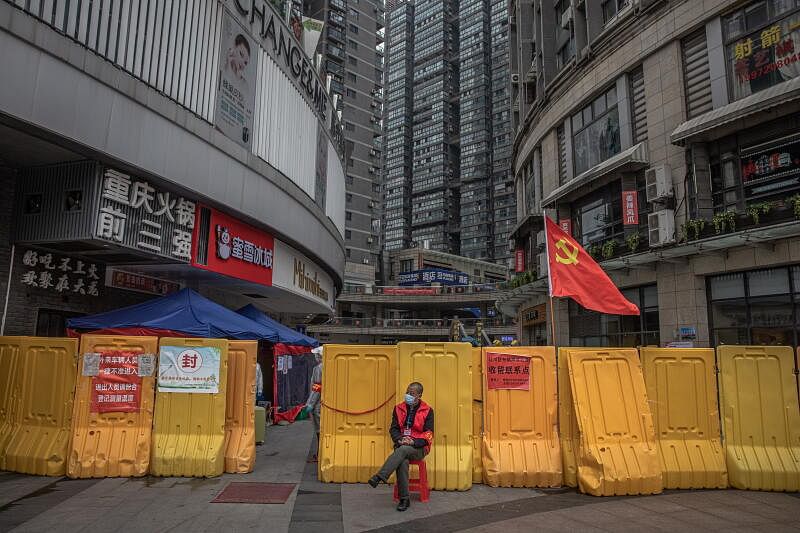
Officials also conducted door-to-door health checks and forced anyone ill into isolation.
The rest of Hubei province was shut down soon after the closure of Wuhan, affecting another 47 million people.
Several other Chinese cities were also put under a virtual lockdown and travel between provinces was severely limited by the cancellation of long-distance buses and trains. Cities like Shanghai and Chongqing also delayed restarting work after the Chinese New Year holiday to prevent the mass movement of people.
In the capital city of Beijing, offices remained shut well into February and companies encouraged staff to telecommute. As buildings reopened, workers were subject to a raft of measures such as wearing masks within their offices, social distancing and a cap on the number of staff allowed.
Mainland China has recorded more than 81,000 cases and more than 3,300 deaths.
India
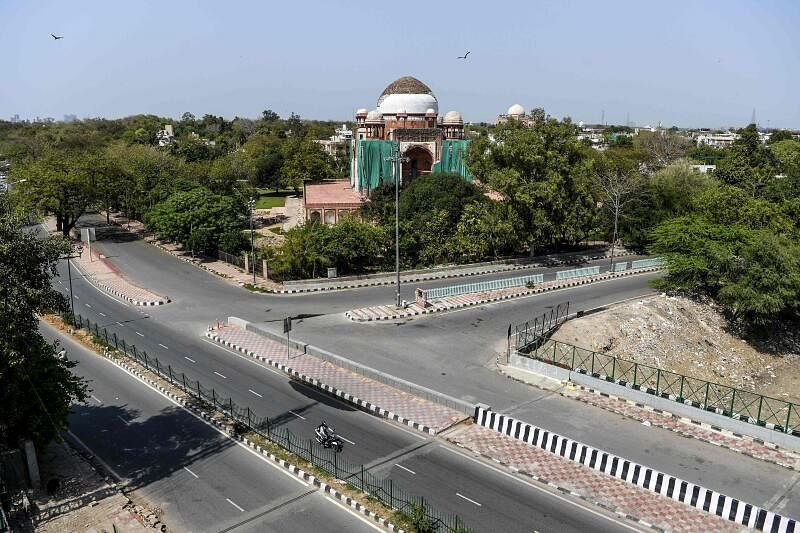
It has never been done before: 1.3 billion people - a fifth of the globe's population - locked down in one place for 21 straight days. Prime Minister Narendra Modi ordered the unprecedented move on March 24 in a bid to replicate China's relative success in curbing the spread of the coronavirus. But the order came with just four hours' notice, crippling millions of daily wage workers in the cities who suddenly found they had no way to earn a livelihood or return home with passenger transport already blocked.
Hundreds of thousands of labourers have been heading back from cities where they worked to their home villages, some walking hundreds of miles and with little money or food. The exodus has raised worries that those returning may spread the virus into rural areas, particularly with authorities resorting to cramming people onto buses and into relief camps and homeless shelters.
Police have strictly enforced the nationwide lockdown even though Mr Modi said essential services would be maintained. Already there have been reports of police beating to death a man who left his house to buy groceries.
People venturing out without good reason could be arrested, fined up to 1,000 rupees (S$19.03) and jailed for as long as six months, according to The Economic Times.
Italy
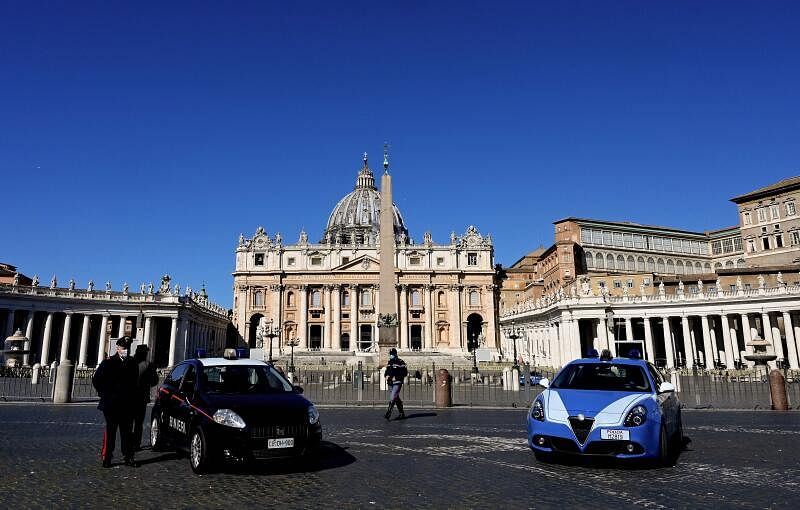
The country implemented its first lockdown in late February in 11 municipalities in the north. A nationwide lockdown was put in place on March 9. The curbs would remain until at least the Easter holidays in mid-April.
Italy was the first Western country to introduce swingeing restrictions on movement after uncovering the outbreak since Feb 21. It has tightened them week by week, banning all but core strategic activities, while shuttering restaurants, most shops, bars, schools and universities.
Under new rules announced on March 21, sport and physical activity outside, even individually, is banned. Anyone caught on the streets without a valid reason risks a fine of up to 3,000 euros (S$4,697), up from the previous 206 euros.
Authorities have charged more than 40,000 people so far for violating the lockdown, according to figures from the interior ministry.
More than 12,000 people have died in Italy since Feb 21, the highest death toll in the world from the coronavirus, while over 105,000 others have been infected.
Stay-Home Orders
The United States
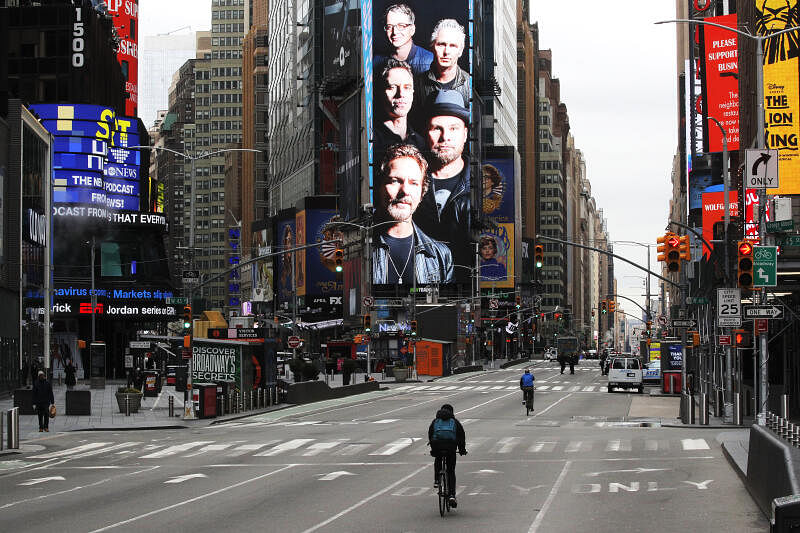
At least 21 states, representing more than half the American population of 330 million, have closed non-essential businesses and told residents to stay home.
The stay-home order means residents should avoid going outside except for essential services - such as going out to buy food or medicine - or to work in critical sectors.
On March 16, the White House announced guidelines - which include avoiding gathering in groups larger than 10, schooling children at home and not eating out - to help reduce the spread of the coronavirus over the next 15 days.
The US now has the world's largest number of cases - almost 189,000 - and almost 4,000 death, with New York being the worst hit city.
Germany
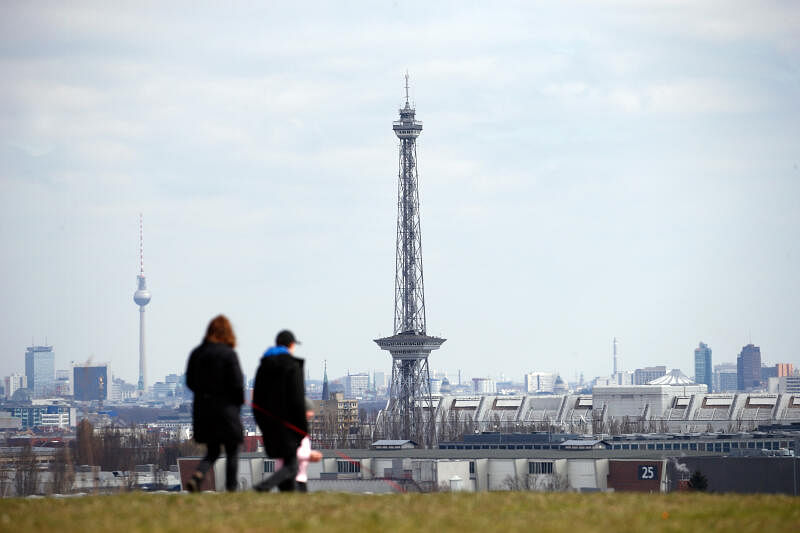
Despite being the third worst-hit European country after Italy and Spain, Germany has not introduced stringent measures. It has urged the population to stay indoors and limit contact with other people as much as possible. It has banned gatherings of more than two people, and closed schools, non-essential shops, bars and restaurants. But people are still seen socialising outside, calling such gatherings "corona parties".
The government has no sweeping nationwide guidelines on fines, leaving it up to the individual states to decide for themselves, Spiegel reported. In the states of North Rhine-Westphalia and Rhineland-Palatinate, people who unnecessarily leave their homes can face fines of up to €25,000 (S$39,148).
Gender-based prohibitions
Panama
The Central American country has separated citizens by gender in a stringent effort to slow the spread of the coronavirus.
Starting from April 1, men and women can only leave their homes for two hours at a time, and on different days. Men will be able to go to the supermarket or the pharmacy on Tuesdays, Thursdays and Saturdays, while women will be allowed out on Mondays, Wednesdays and Fridays. No one will be allowed to go out on Sundays.
The new measure will last for 15 days. Since the first case was reported on March 10, Panama has confirmed over 1,100 cases of the coronavirus and 30 deaths.
Business-as- usual
Belarus
The borders are open. People are still visiting their favourite cafes, and parks are full of families. Seen as one of Europe's most restrictive countries, Belarus is taking a more laissez-faire approach to the spread of the deadly coronavirus.
"It's better to die standing than to live on your knees," said President Alexander Lukashenko, laughing in an interview with the state-owned ONT TV channel after playing an ice hockey match.
The 65-year-old leader said playing sports, especially his favourite game of ice hockey, is the best medicine to fight the virus. So far, he has resisted introducing widespread quarantines even as neighbouring countries such as Poland and Russia shut their borders and start lockdown measures.
Mr Lukashenko, who's still focused on the economic impact of coronavirus, called foreign politicians' measures a "psychosis" used to advance their own interests - from taking protesters off the streets to managing elections.
Belarus has reported more than 150 cases of infection and one death so far.
Brazil
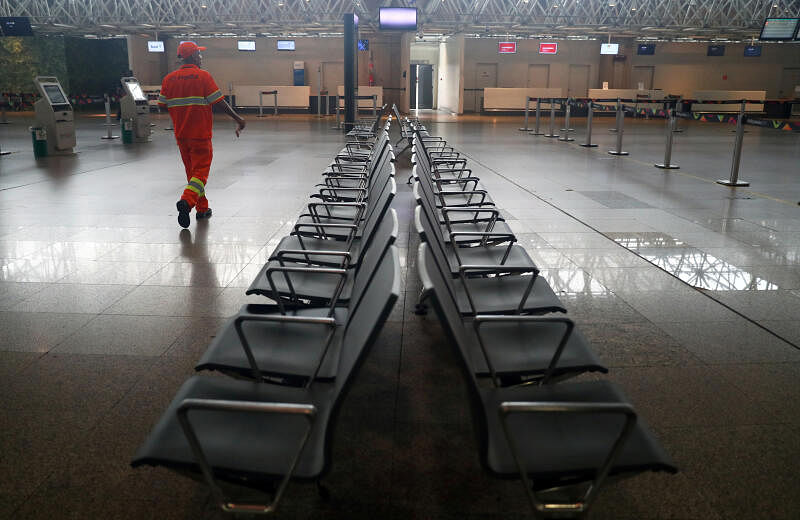
Far-right President Jair Bolsonaro has compared the coronavirus to a "little flu," saying it triggered an "overblown" reaction, and rejecting measures such as closing businesses and schools. That flies in the face of the World Health Organisation, his own health ministry and the confinement measures now adopted by nearly half the Earth's population to slow the spread of the virus.
But the man dubbed the "Tropical Trump" for his in-your-face style has stuck to his guns as the pandemic has taken hold in Brazil, the hardest-hit country in Latin America, with more than 5,800 cases and over 200 deaths so far.
Mr Bolsonaro has spoken of fighting the pandemic with "vertical isolation": confining those at highest risk and letting the rest of society get on with life. But experts have cautioned against that. "Isolating only the elderly and leaving out the rest, without knowing how the virus is behaving and spreading in Brazil, is not the right approach," said infectious disease specialist Eliana Bicudo.
SOURCE: AGENCE FRANCE-PRESSE, REUTERS, BLOOMBERG, THE GUARDIAN, WORLDOMETER
